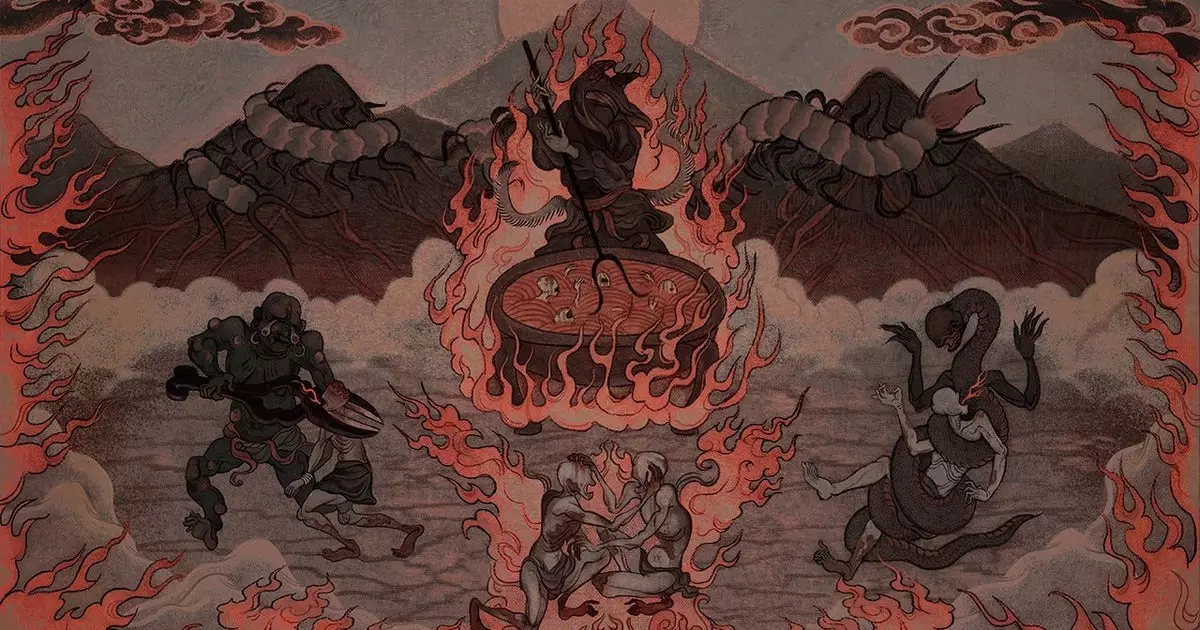In the realm of indie horror gaming, “Labyrinth of the Demon King” appears as a grotesque gem, merging the chilling essence of “Silent Hill” with the psychological dread of “Amnesia: The Dark Descent.” This title, released recently, presents a chaotic gameplay experience that serves both as a feast for horror aficionados and a curse for those unprepared for its grim atmosphere. The game’s mechanics echo the retro charm of From Software’s early RPGs, particularly the stamina-based combat of “King’s Field,” bringing with it a sense of nostalgia that is both unsettling and captivating.
Set in a warped echo of feudal Japan, players find themselves navigating a nightmarish landscape steeped in both folklore and human suffering. The narrative thrust involves the pursuit of a malevolent yokai who has ensnared the protagonist’s lord into an ambush. However, players are left wrestling with the knowledge that thwarted ambitions and gruesome encounters with twisted entities define their journey. The world teems with a bizarre assortment of grotesque creatures; these “filthbastards” potently personify the struggle for survival in a realm where monstrosity is the norm.
The Macabre Aesthetic
“Labyrinth of the Demon King” revels in its oppressive design, effectively creating an atmosphere reminiscent of horror titles from the early gaming era. The deliberate choice of grainy textures and dithering effects heightens the sense of disorientation, trapping players in a visual and emotional labyrinth. Indeed, the game transports you into what feels like a waking nightmare, where the line between reality and horror blurs with every creaking door and ominous shadow.
Combat mechanics are unyielding and visceral; the protagonist wields reefer-thin weapons that evoke doubt rather than empowerment. Equipped with a mere broken katana and limited resources, there is an underlying sense of vulnerability. The art of combat heavily relies on careful stamina management, making each encounter a painfully slow ballet of clumsiness and desperation. Engaging enemies often feels less like a power struggle and more like an exercise in survival, leading to a profound engagement with the game’s pervading theme of hopelessness.
Unearthing the Gameplay Experience
Navigating through the dilapidated environments often leads to thrilling revelations—if one has the courage to face them. The game urges exploration in a world littered with hidden stationary dangers, murky surprises, and desolate narratives waiting to unfold. Players find themselves hunted by grotesque creatures, all while intrigued by the promise of hidden truths buried in the dark corners of this dreadful setting.
In this macabre playground, traditional gameplay mechanics are skewed. Players are encouraged to scavenge, hide, and adopt unexpected strategies against enemies that can consume you whole. The cat—this enigmatic creature tied to a blacksmith’s fate—stands as a symbol of uncertainty, promising both assistance and potential peril. This cat may very well become a pivotal point in one’s quest, challenging players’ perceptions of literacy in gameplay scenarios.
The Soundscape of Dread
Complementing the haunting visuals is an extraordinary soundscape that heightens the fear factor. Players are engulfed by unsettling audios that evoke feelings of dread. Echoing whispers and distant, unplaceable sounds weave a fabric of tension that keeps players on edge. The auditory design operates as a vital character itself, pushing players to confront their deepest fears as they venture further into the layers of darkness.
Despite its shortcomings, “Labyrinth of the Demon King” remains a shining example of how the indie horror gaming scene can embrace the uncanny, crafting an experience that proves both terrifying and oddly enchanting. It stands as a testament to the rich, tumultuous legacy of horror games, turning claustrophobic spaces into realms where imaginations can run wild, albeit steeped in a stranglehold of darkness. As players grapple with their motivation to uncover the twisted truths lying beneath its surface, they unearth not only a game but a raw, emotional experience encapsulating the trials of survival against unfathomable horrors.

